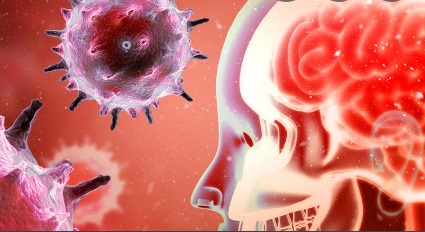NERVE INFECTION, ACUTE AND OR CHRONIC
There are three types of nerves in the body:
- Autonomic nerves. These nerves control the involuntary or partially voluntary activities of your body, including heart rate, blood pressure, digestion, and temperature regulation.
- Motor nerves. These nerves control your movements and actions by passing information from your brain and spinal cord to your muscles.
- Sensory nerves. These nerves relay information from your skin and muscles back to your spinal cord and brain. The information is then processed to let you feel pain and other sensations.
Depending on the affected nerves, diabetic neuropathy symptoms include pain and numbness in the legs, feet and hands. It can also cause problems with the digestive system, urinary tract, blood vessels and heart. Some people have mild symptoms. But for others, diabetic neuropathy can be quite painful and disabling.

Common causes of Neuropathy
Autoimmune diseases
Rheumatoid arthritis, Guillain-Barre syndrome, chronic inflammatory demyelinating poly neuropathy and vasculitis.
Diabetes
This is the most common cause. Among people with diabetes, more than half will develop some type of neuropathy.
Infections
Viral or bacterial infections, shingles, Epstein-Barr virus, hepatitis B and C, leprosy, HIV.
Other diseases
These include kidney disease, liver disease, connective tissue disorders and an underactive thyroid (hypothyroidism).
Alcoholism
Poor dietary choices made by people with alcoholism can lead to vitamin deficiencies.
Medications
Certain medications, especially those used to treat cancer, chemotherapy.
Injury or pressure on the nerve.
Injuries, such as from motor vehicle accidents, falls or sports injuries, can sever or damage peripheral nerves.
Vitamin deficiencies
vitamins — including B-1, B-6 and B-12 — vitamin E and niacin are crucial to nerve health.
Encephalitis (en-sef-uh-LIE-tis) is inflammation of the brain. There are several causes, including viral infection, autoimmune inflammation, bacterial infection, insect bites and others. Sometimes there is no known cause. Encephalitis may cause only mild flu-like signs and symptoms — such as a fever or headache — or no symptoms at all. Sometimes the flu-like symptoms are more severe. Encephalitis can also cause severe symptoms including confusion, seizures, or problems with movement or with senses such as sight or hearing. In some cases, encephalitis can be life-threatening. Prompt diagnosis and treatment are important because it’s difficult to predict how encephalitis will affect each individual.

